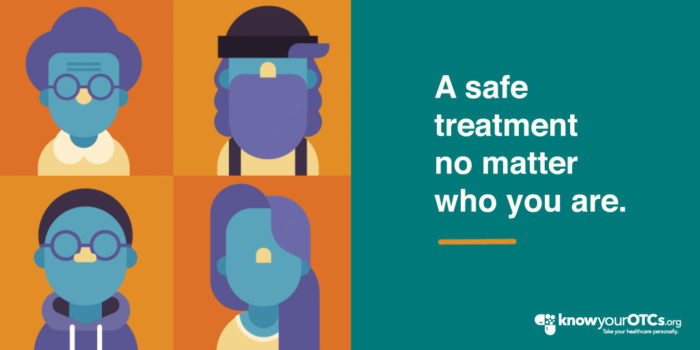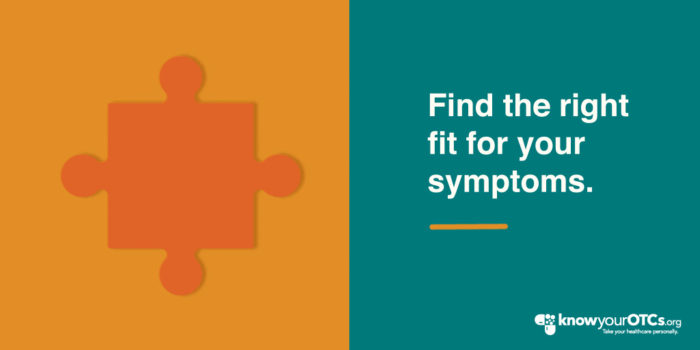This post is brought to you by the CHPA Educational Foundation and The Motherhood. All opinions are 100% my own.

I remember it like it was yesterday, I was in my last year of college and my mom and nephew had come to visit me for the weekend. When I came home to visit or whenever my parents came to visit they would always make sure I had groceries, home-cooked meals, and we would likely have dinner together before they left.
Before they left we ordered a pizza (because ever since I could remember it’s been my favorite), we ate and they got on the road! I had been under a lot of stress with it being my last year of school and the visit helped me decompress, or so I thought! Once my mom was gone I started having chest pains. I knew I wasn’t having a heart attack but it wasn’t a comfortable feeling either. I called one of my friends and asked her to ride to the Emergency Room with me.
While at the Emergency Room I learned that what I was suffering from was heartburn! I was given an antiacid while at the hospital and then a prescription to go home with, and that helped! Heartburn is also referred to as acid reflux, heartburn is an uncomfortable, painful, or burning feeling in your chest or throat that may begin after a meal and last a few minutes to many hours. Other symptoms may include a hot, sour, or acidic fluid feeling in the back of your throat, as well as a cough that lasts for a while, sore throat, or hoarse voice.

Did You Know…
More than 1 in 4 adults experience heartburn symptoms at least once a week. Millions of these individuals experience frequent heartburn, meaning their symptoms re-occur at least two days per week.
Occasional heartburn is extremely common and can be managed with lifestyle changes as well as certain over-the-counter (OTC) medicines such as antacids. Frequent heartburn is defined as symptoms occurring two or more days per week. Frequent heartburn can generally also be treated with a combination of lifestyle changes and OTC medicines.
At the time in college when I ended up in the Emergency Room, I was dealing with occasional heartburn! I quickly started paying attention to what I was eating and emotional triggers and my symptoms pretty much went away. After noticing, whenever I get extremely stressed this triggers my symptoms. I knew I was taking myself through it and I had to find a better way to manage life!

Then came the COVID pandemic. In the beginning, I was okay. My family started paying attention to the pandemic before it hit the United States. So we slowly started stocking up on food, and essentials. So once we were quarantined, it was like a big sleepover with my family (the ones that lived in my house). The kids would get up do school work, I would work from home, and my husband was off because he had recently had surgery. I knew we were all safe, so I was good! Then it became time for my husband and I to start transitioning back to work. And although I had some anxiety, I was still pretty good. It actually felt good to get out the house a couple of times a week! Then it was time for my children to go back to school…this is when everything went downhill for me!
Everything was up and down with school preparations, and I started to experience heartburn daily whenever I ate, and in the morning when I woke up. Due to the stress of school starting back, and experiencing symptoms I started back taking my prescription and after going to the doctor’s office for my physical, I was diagnosed with GERD (Gastroesophageal reflux disease), a long-term condition where acid from the stomach comes up into the esophagus.
Americans are busy adopting new routines to stay healthy and help prevent the spread of COVID-19, but the stress of navigating daily life during a pandemic remains. We’re spending more time at home, leading more sedentary lifestyles, and indulging in more comfort food than usual, which can result in heartburn.
There are many ways to treat heartburn symptoms, and its best to know which kind you are treating before beginning a treatment regime. Different heartburn treatments work differently; the right treatment depends on the frequency and cause of your heartburn.
-
- For all types of heartburn, lifestyle considerations, like maintaining a healthy weight, not smoking, and diet changes, are an important first step in helping to manage your symptoms.
- For frequent heartburn, over-the-counter (OTC) proton pump inhibitors (or OTC PPIs) are the only nonprescription medicines designed to treat frequent heartburn. They help to block and decrease the production of stomach (gastric) acid.
- For occasional or chronic heartburn, there are different ways to treat those symptoms: antacids or H2 blockers for occasional heartburn, and prescription-strength PPIs and other treatments—including surgery – for chronic heartburn.
If you want more information on heartburn symptoms and treatments, you should visit KnowYourOTCs.org a website created by CHPA Educational Foundation. This website serves as an over-the-counter (OTC) information resource to help you use, store, and dispose of your medicine safely.

Know about your options for treating heartburn symptoms. Different heartburn treatments work differently; the right treatment depends on the frequency and cause of your heartburn. For more information on treatments for heartburn symptoms, visit the digestive health page on KnowYourOTCs.org


 For those tha
For those tha





